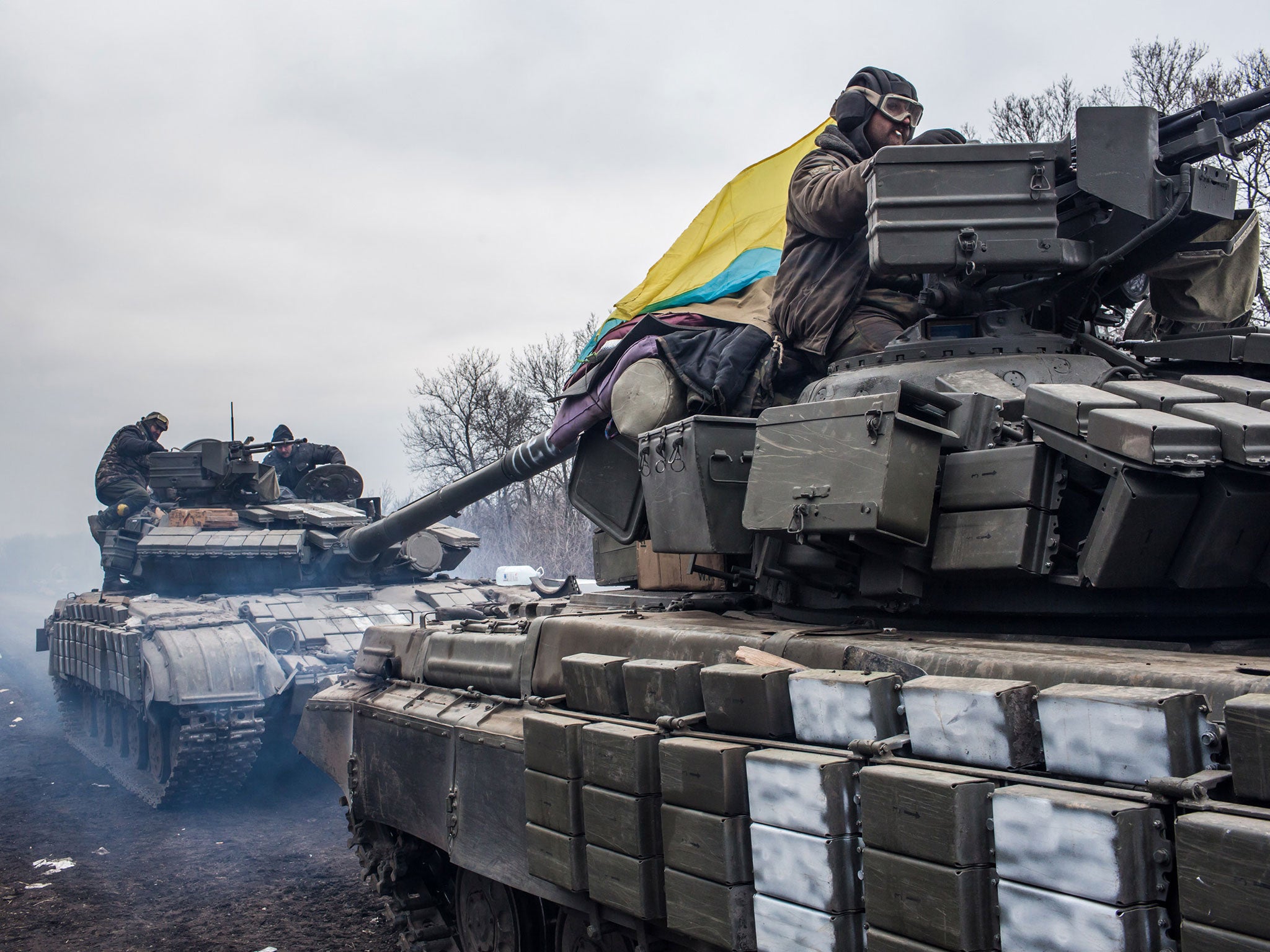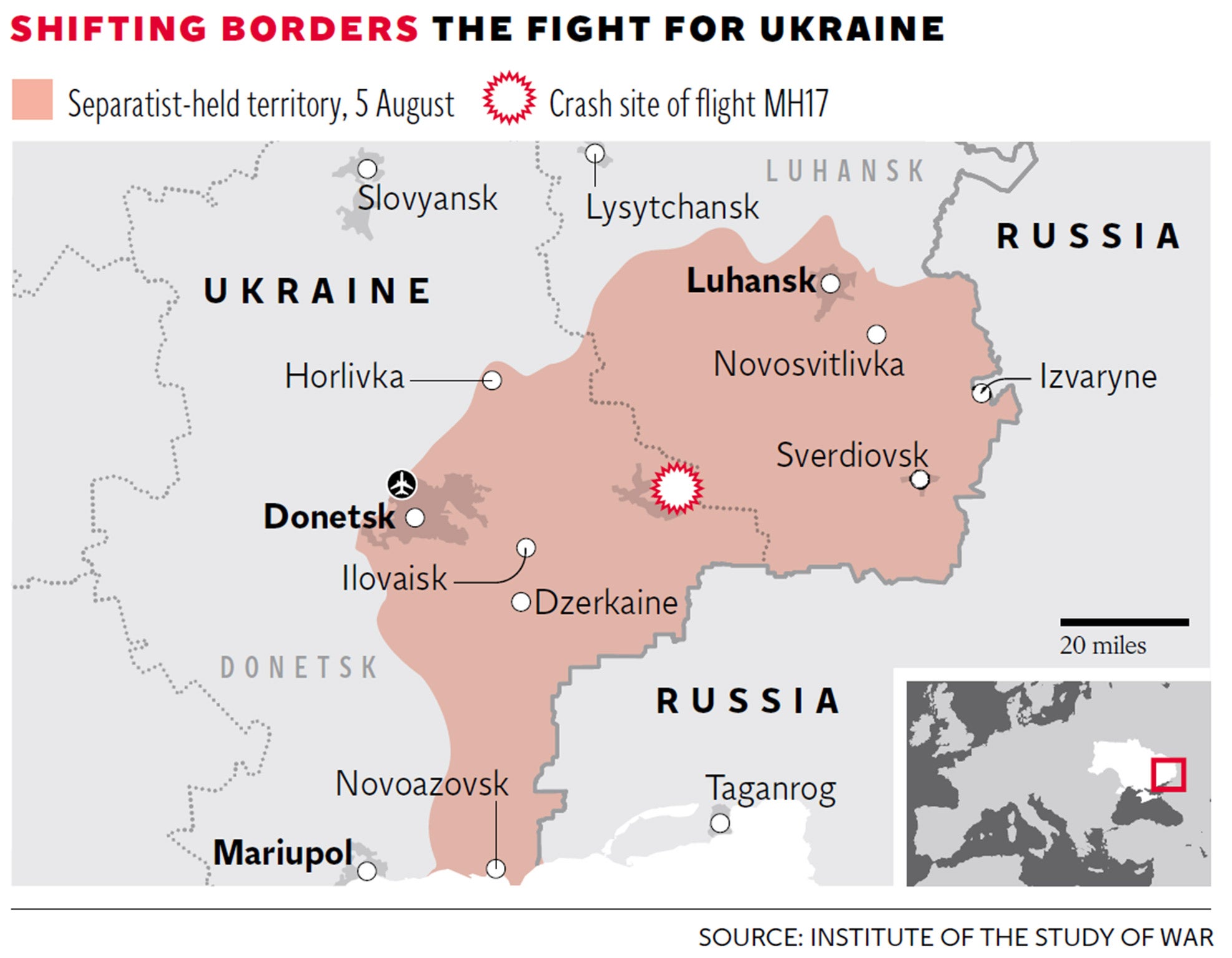Britain to double number of Ukrainian troops it is training as Russian backed separatists launch biggest assault in six months
Michael Fallon said move was imperative as violence in the east of the country 'shows no sign of ending anytime soon'

Your support helps us to tell the story
From reproductive rights to climate change to Big Tech, The Independent is on the ground when the story is developing. Whether it's investigating the financials of Elon Musk's pro-Trump PAC or producing our latest documentary, 'The A Word', which shines a light on the American women fighting for reproductive rights, we know how important it is to parse out the facts from the messaging.
At such a critical moment in US history, we need reporters on the ground. Your donation allows us to keep sending journalists to speak to both sides of the story.
The Independent is trusted by Americans across the entire political spectrum. And unlike many other quality news outlets, we choose not to lock Americans out of our reporting and analysis with paywalls. We believe quality journalism should be available to everyone, paid for by those who can afford it.
Your support makes all the difference.Britain will double the numbers of Ukrainian troops it is training, it has been announced, as Russian backed separatists launched their biggest assault in six months against government forces.
Defence Secretary Michael Fallon declared that the move was imperative as the violence in the east of the country, orchestrated by Vladimir Putin, “shows no sign of ending anytime soon”. “Russian inspired terrorism”, he maintains, has ensured that the conflict was “certainly not frozen” but one which is “red hot” with Ukraine’s borders “under threat.”
The training programme will raise the total of Ukrainian forces being trained from a thousand to two thousand by the end of the year. Mr Fallon, during a visit to Ukraine, also stated that he is open to request from Kiev for additional trainers; their numbers have already gone up from an initial deployment of 35 earlier this year to 75, operating in six locations.
The countries providing training for the Ukrainian forces – the US, UK, Canada, Poland and Lithuania – will be meeting in the autumn, with London the possible venue, to plan steps to aid the beleaguered government of Ukrainian president Petro Poroshenko.
Mr Fallon’s visit came on the day that Kiev accused the separatists of carrying out an offensive with 400 fighters, heavy artillery and tanks around the village of Starohnativka, 30 miles south of the port of Mariupol, a key strategic point which has been the focus of sustained fighting.
Control of the port would allow a land corridor to be formed from rebel controlled territories to Crimea which the Kremlin annexed last year following the uprising which saw the fall of Russian backed president Viktor Yanukovych.
“This brazen attack by the occupiers took place against a background of an escalating situation in east Ukraine,“ said military spokesman Andriy Lysenko of the Kiev government. The separatist attack, he added, was the heaviest since a battle for the town of Debaltseve in February.
A senior separatist commander Eduard Basurin denied the rebels had attacked government troops and accused the Ukrainian government of instigating the upsurge in violence.
Critics have claimed that sending the training team was an ill-thought reaction by David Cameron who had faced severe criticism for Britain having no voice in what was going on in the Ukraine. The Minsk II agreement which resulted in a ceasefire was brokered by German Chancellor Angela Merkel and Francois Hollande, the French President, without any involvement by London.

Mr Fallon dismissed claims that the UK risked “mission creep” and that Western entanglement in the war will provoke President Putin and jeopardise the peace process.
“This is not provocative. This is all designed to help the Ukrainian forces better defend themselves and to save lives. All of it is being well away from the conflict zone” he insisted. “We were dealing with infantry, intelligence, medical, logistics.
“ We are going to be adding training in ground threat awareness, train them in how to recognise mines and IEDs, training them in urban operations, how to defend themselves better in urban environments, in engineering expertise, how to fortify themselves better in the field.. “
The continuing Russian threat must not be underestimated, he said: “While they retain heavy weapons in the Donbass, and significant numbers of troops, you can’t rule out this continuing threat to Ukraine’s eastern border.”
There have been rising concern that right-wing militias, some of whose members are openly neo-Nazis, which had been fighting against the rebels have become highly influential in the Ukrainian security establishment. The Defence Secretary maintained that the Kiev government has carried out vetting to ensure that none of those being trained by the British are extremists. “ We are going to make sure that is the case”, he said.
Mr Fallon continued: “We shouldn't lose sight of just how serious this situation is. Seven thousand people have already died in the Ukraine, right on the doorstep of Europe, as Ukraine fights for its freedom. This is not a frozen conflict, it’s still red hot. Since the Minsk peace agreements themselves have been signed, around 200 Ukrainian soldiers have lost their lives and around 2,000 have been injured. So this is not a frozen conflict and we are not going to turn our back on Ukraine.”
Join our commenting forum
Join thought-provoking conversations, follow other Independent readers and see their replies
Comments